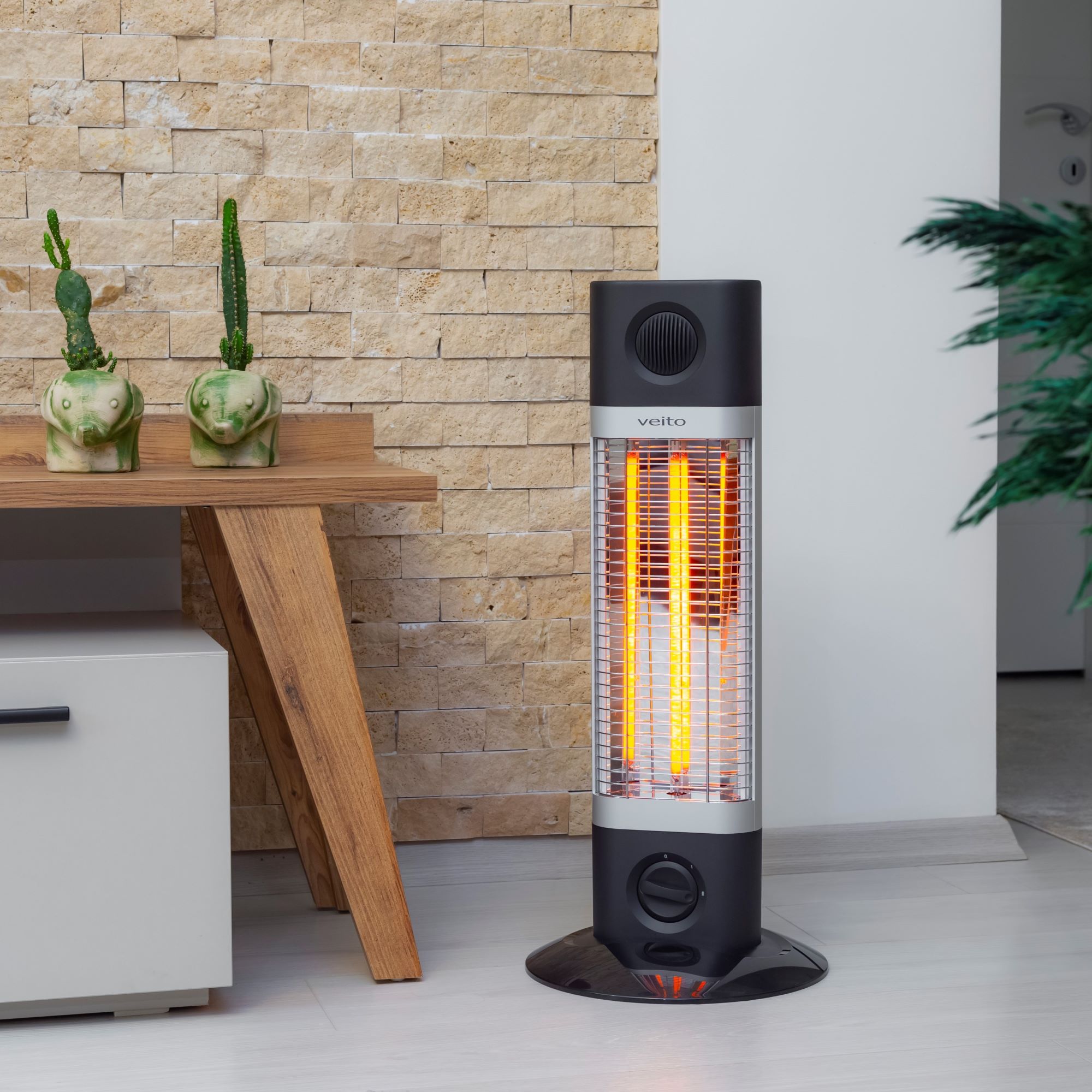
As the chill of winter settles in, an electric heater is the perfect purchase to keep you extra cosy at home without needing to crank up the heating to more than what's necessary. However, picking the right one is actually deceptively difficult.
Since there can be many features and differences between model to model, people often fall victim to a handful of mistakes when buying an electric heater; including failing to account for size, energy-efficiency, and important safety features. As a result, people are signing up for either inadequate heating or unnecessary expenses.
Therefore, to ensure you choose the best electric heater for your space, we've asked experts to share the things the most common mistakes to avoid if you're in the market for one this winter.
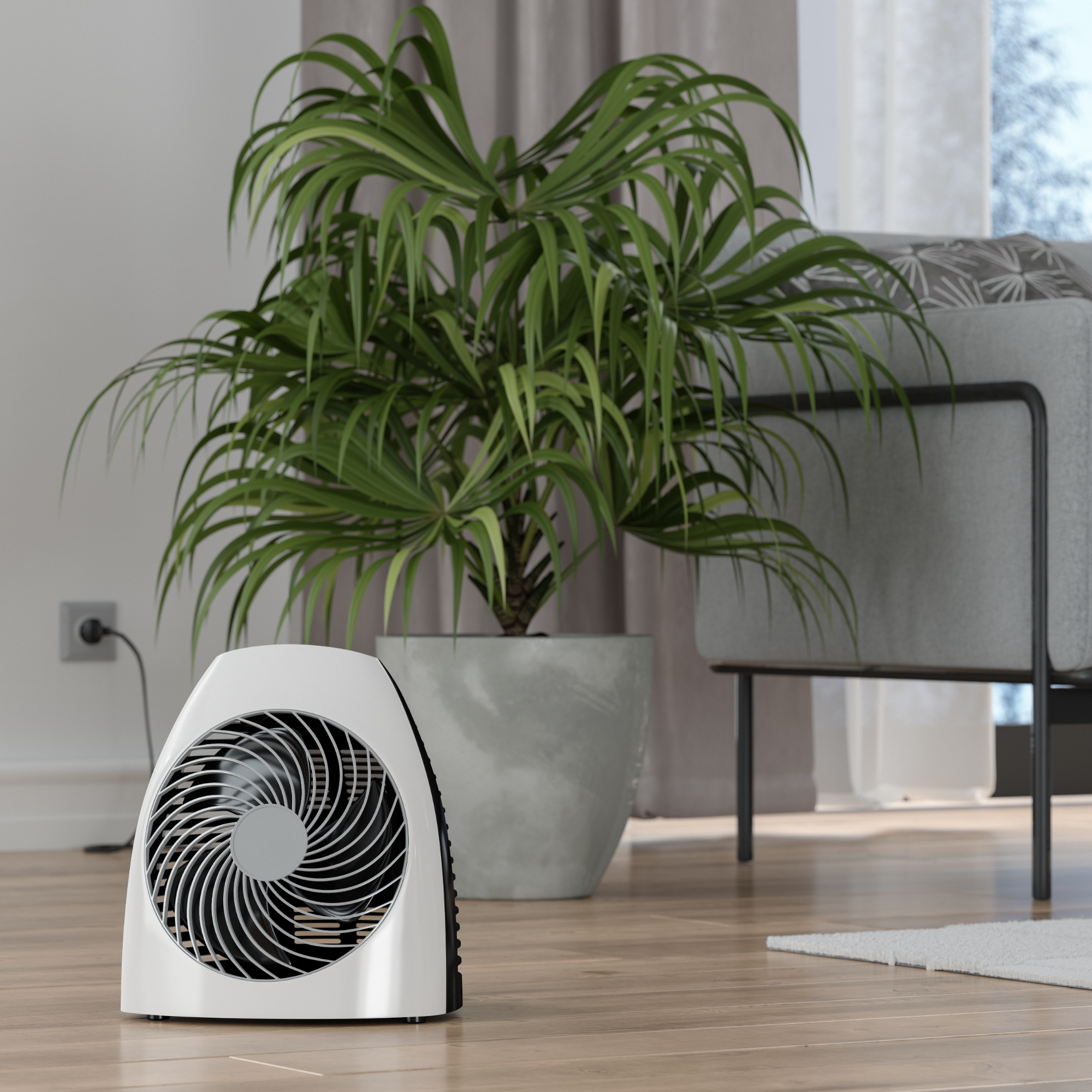
1. Choosing the wrong type of heater
Should you go for an electric heater over a gas heater? Electric heaters are not a one-size-fits-all, as there are multiple different types of heaters to suit your heating needs and your space. Andrai Carcu, appliance installation expert at London Electricians 247 explains the different types as such:
- Convection heaters are best for general heating of larger spaces.
- Radiant heaters are great for providing localised warmth in specific areas.
- Fan heaters are best for quick heating of smaller spaces.
- Oil-filled radiators are good for providing steady, long-lasting heat.
- Infrared heaters work by targeting the heating of specific areas, often outdoors.
Each of these heaters offer something different to the table, so it's worth knowing which one is best suited for keeping your house warm in winter depending on where in your home you plan to situate it. Choosing a heater that isn't suitable for your space can ultimately leave you disappointed in its performance.
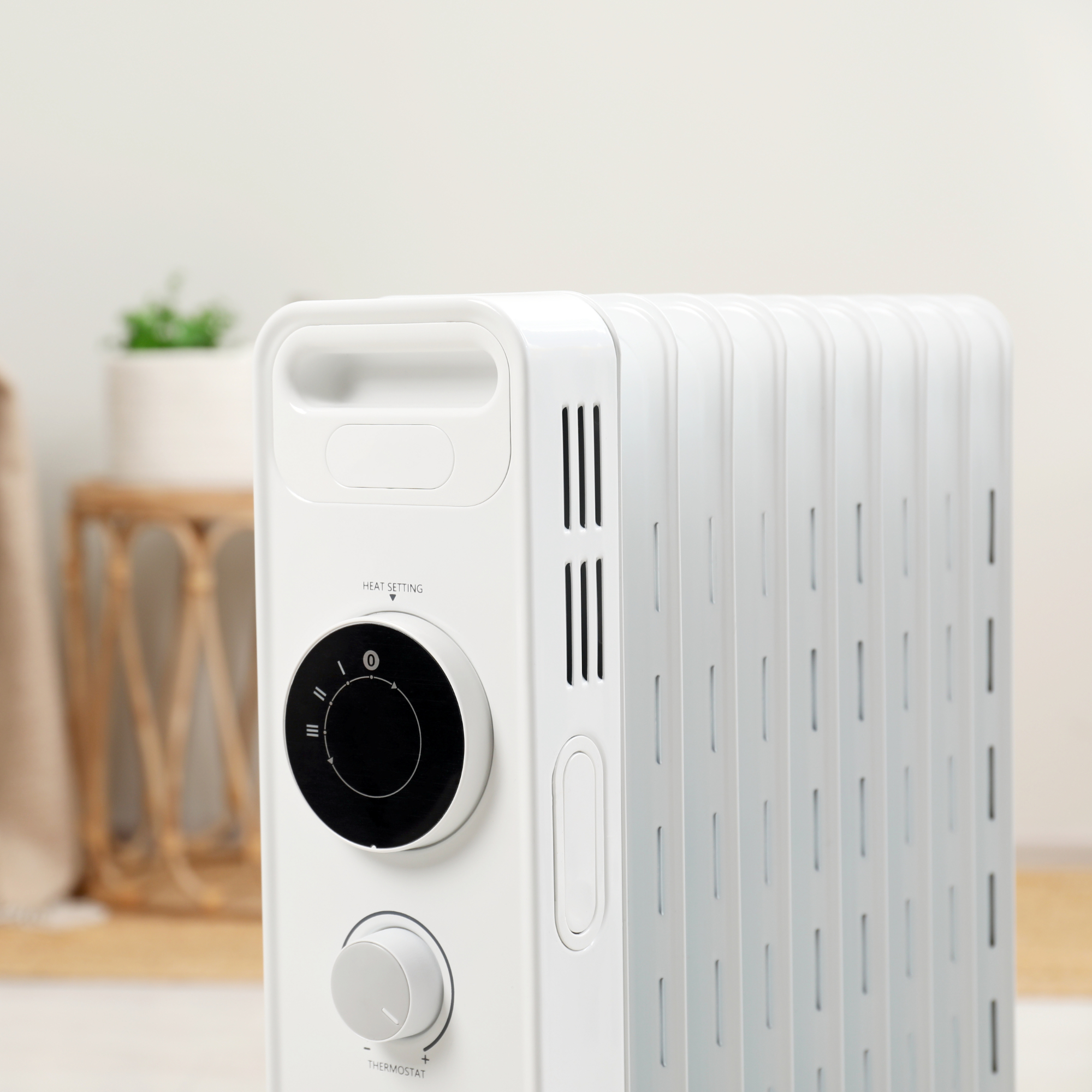
2. Underestimating size and heating capacity
In a similar fashion, another mistake that is often made when buying an electric heater is underestimating its size and capacity. In other words, buying a heater that is either too small or too large for the intended space. Aside from just the buying aspect, this is a big electric heater mistake overall.
'Heaters have different wattage ratings, and selecting one that doesn't match your room size can result in inefficient heating,' cautions David Miloshev, electrician expert at Fantastic Services.
To avoid this from happening, David recommends calculating the size of the room you intend to put it in and matching it to the heater's wattage. 'As a rule of thumb, you need about 10 watts per square foot of space. For example, a 1,500-watt heater is generally suitable for a 150-square-foot room. Always check the heater's specifications for the recommended room size,' he notes.
Of course, the beauty of a portable electric heater is its convenient plug and play aspect; so if there's no one place you want it in, it's best to have a general idea of the different areas you have in mind and getting an average from there.
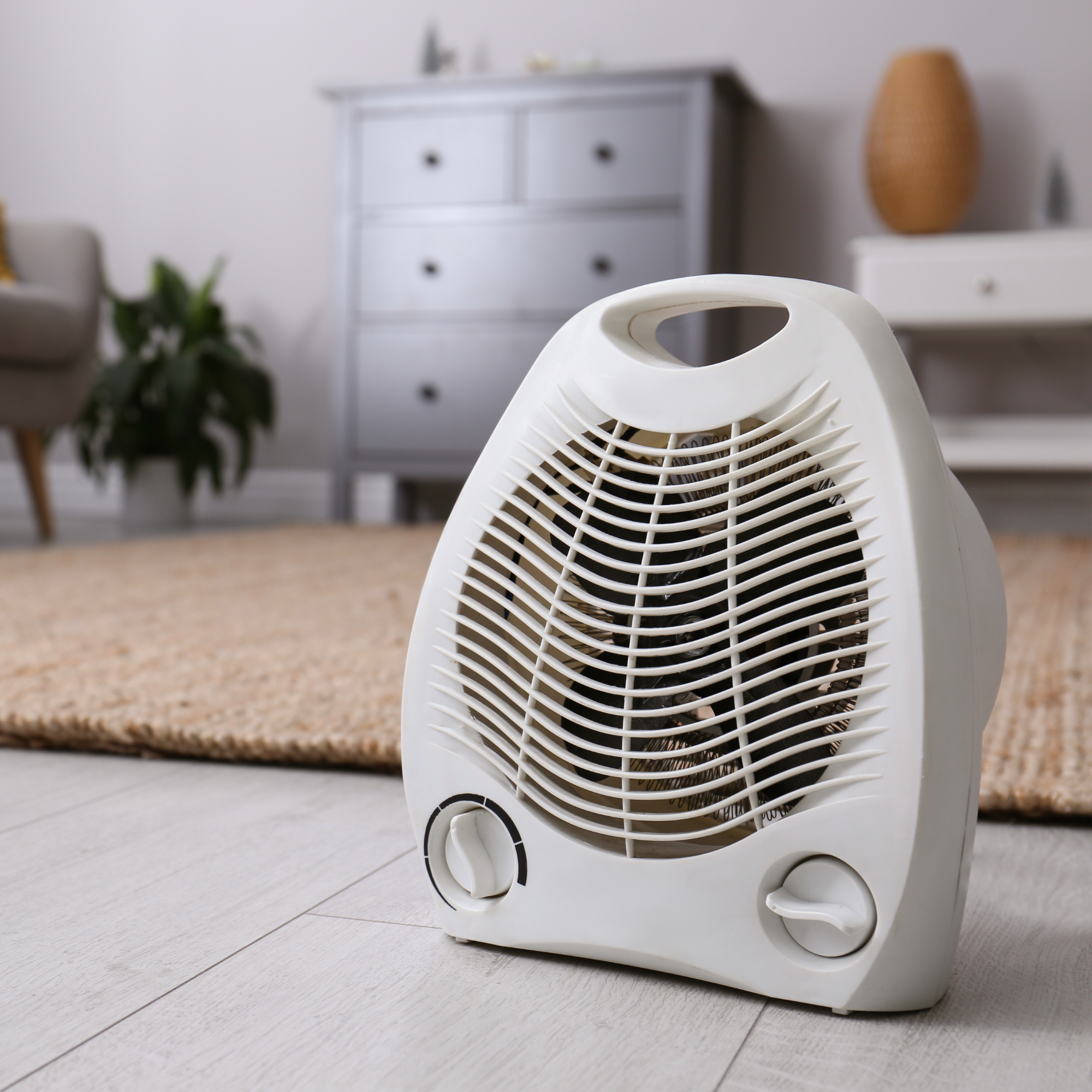
3. Ignoring energy efficiency
While using an electric heater is generally less expensive than the cost of running central heating, your energy bills can rack up if you're careless. 'Some people fail to consider how much it will cost to run an electric heater, leading to unexpectedly high electricity bills,' says David.
'Check for energy-saving features like eco-mode, adjustable thermostats, and energy-efficient designs. Some heaters also come with energy usage monitors to help you track and manage consumption. Additionally, purchasing a heater with a thermostat helps maintain the desired temperature without overusing energy,' he advises.
Circling back to the first point we made, it's also worth considering the cheapest type of electric heater to run. For example, infrared heaters (halogen heaters being the most common) cost less to operate compared to fan heaters.
4. Only focusing on low initial costs
In the same breath as the last point, another big mistake people make when buying an electric heater is only doing so because of extremely affordable upfront costs, with no regards to its other features.
'People are often focusing on the low initial costs over long-term efficiency. Opting for a budget model might save you some money upfront, but it could lead to higher energy bills due to poor heating capability,' warns Alfons Daci, founder of Clear Cost Utilities. 'A cheap heater might struggle to warm a larger area, meaning you use it more and spend more.'
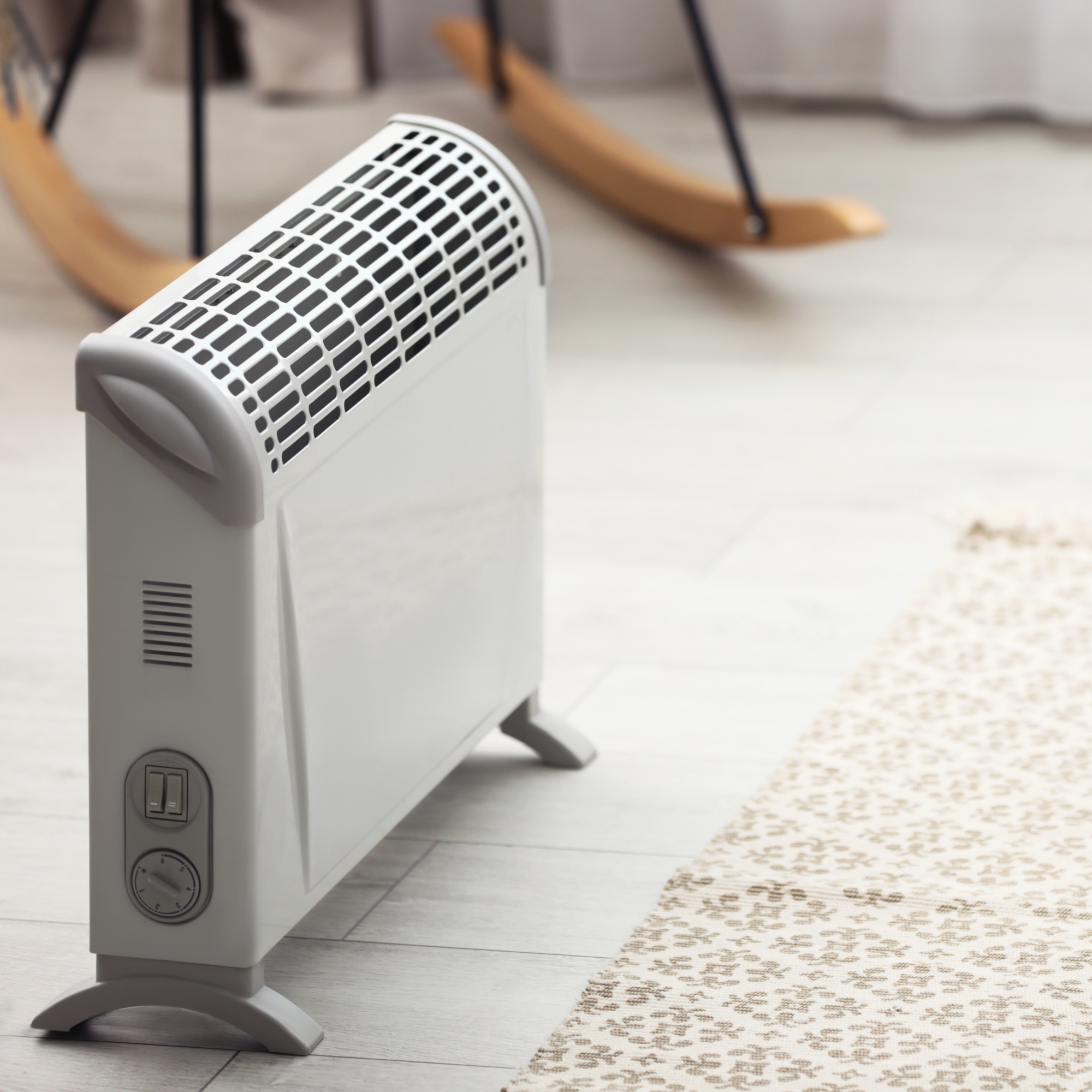
5. Overlooking portability and usability features
As we touched on earlier, the beauty of an indoor electric heater is its portability; and just because it can be unplugged and moved doesn't mean it ticks all the boxes.
'Some buyers don't consider how easy it is to move or operate the heater, leading to frustration later on. Look for heaters with built-in handles, caster wheels, or a lightweight design if you plan to move it between rooms,' advises David. 'Additionally, features like remote control, programmable timers, and adjustable thermostats can add significant convenience, making the heater more user-friendly.'
6. Not considering noise levels
If you're sensitive to sound or plan on using your electric heater during night-time or in your home office while you're working, it's important to consider just how loud it is, so as to not cause you issues down the line.
For example, fan heaters tend to be on the noisier side because of the way they operate. In this case, opting for one of the best oil-filled radiators or a ceramic heater instead is advisable. To avoid running into this mistake, David recommends always checking noise ratings if they're available or to read user reviews to get a sense of what to expect.

7. Overlooking safety features
Safety should always be a priority when it comes to heating appliances, yet it's easy to overlook essential safety features. This can result in accidents like burns or fire hazards, especially in homes with kids or pets.
While a slick design and powerful heating capability may grab your attention, it's more important to opt for heaters with overheat protection, tip-over switches, and cool-to-touch exteriors. If you’re using the heater in a damp environment like a bathroom, make sure it’s specifically rated for that use.
8. Forgetting about placement
It’s tempting to buy the first heater that suits your budget and gets the best review, but where you put it is just as important as its performance. In fact, these are the worst places to put an electric heater. Wall-mounted heaters are great for tight spaces, while freestanding models have more flexibility and are great if you want to heat one room at a time.
Plus a poorly placed heater not only compromises safety but can also make your room feel unevenly warm, defeating the whole purpose of using it. Consider your room’s layout, available sockets, and traffic flow.
It's also a good idea to measure the space to ensure the heater fits comfortably without obstructing pathways. For example, placing a heater near curtains, furniture, or in the path of children or pets can be hazardous and will reduce its efficiency.
Shop our top-rated electric heaters
This Dreo fan heater is quick to heat a room, oscillates for good heat distribution, has three fan speed settings, and can maintain a temperature of between 5-35°C. It's also relatively affordable, compact, and easy to move around the home.
A convector heater is slower to emit warmth than a fan heater, but, its operation is silent, and its steady heat can be more economical if you have it running for long periods, or if you have a large room to heat.
This powerful portable radiator emulates a traditional oil-filled radiator but uses 'oil-free technology' that warms up quicker. It's big and heavy, but it has three powerful heat settings, a thermostat, timer, digital controls and remote control operation.
All in all, buying an electric heater is a fantastic way to ensure your home stays warm and cosy during the winter months without worry of breaking the bank, but to fully take advantage of these benefits, avoiding these common pitfalls is the first step. A well-chosen and considered heater will not only keep you warm, but can also elevate the look a room, marrying function and style.
By taking the time to research different types of heaters, assess the size of your space, and make a mental note of safety, energy-efficiency, and usability features that are important for you, you'll be well on your way to find an electric heater that will meet your needs and more.







